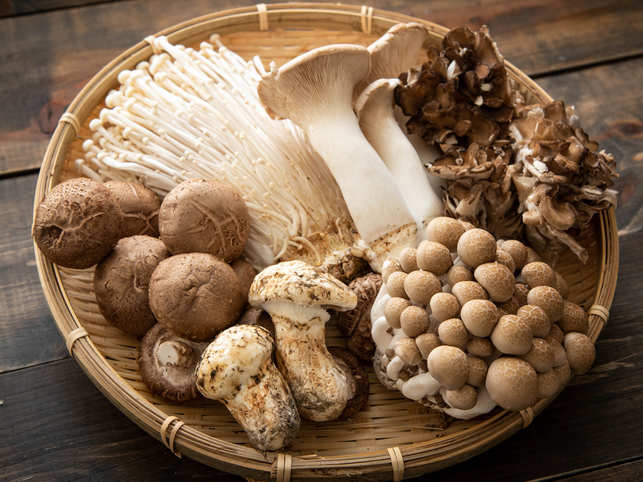According to new research, people who consumed mushrooms at least twice a week were 50% less likely to develop mild cognitive impairment.
The stage between the expected cognitive decline, due to a normal aging process and the more severe decline of dementia is defined as mild cognitive impairment.
This impairment can cause issues with language, memory, attention and difficulty finding different objects.
As part of this six-year study, scientists from the National University of Singapore followed over 600 senior citizens and their diets.
Participants were questioned how often they ate one or more of the six different types of mushrooms: white button, oyster, shiitake, dried, golden and tinned.
It was found that the participants who reported eating mushrooms regularly, got higher scores on brain tests involving processing and thinking.
The results were particularly impressive in participants who ate more than two portions of mushrooms a week (around 10 ounces).
Psychology professor Lei Feng, and lead author of the study explained that it was “surprising and encouraging” to learn “a single, commonly available ingredient could have such a dramatic effect on cognitive decline.”
Foods like green leafy vegetables, tea, nuts and fish are also very beneficial for the brain, she said.
Researchers say that mushrooms’ high content in ergothioneine, the anti-inflammatory antioxidant is most likely the nutrient responsible for the dramatic results.
Aside from ergothioneine, mushrooms also contain other vital nutrients and minerals such as selenium, vitamin D and spermidine, which shield neurons from damage.
In a BBC interview, Dr, James Pickett, head of research at Alzheimer’s Society, said: “There are lots of factors that contribute to the development of dementia, and it’s estimated that up to a third of cases could be prevented by changes in lifestyle, including diet.”



Leave a Reply